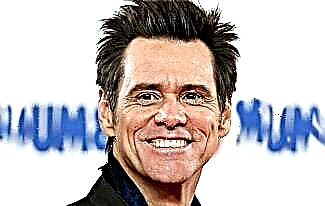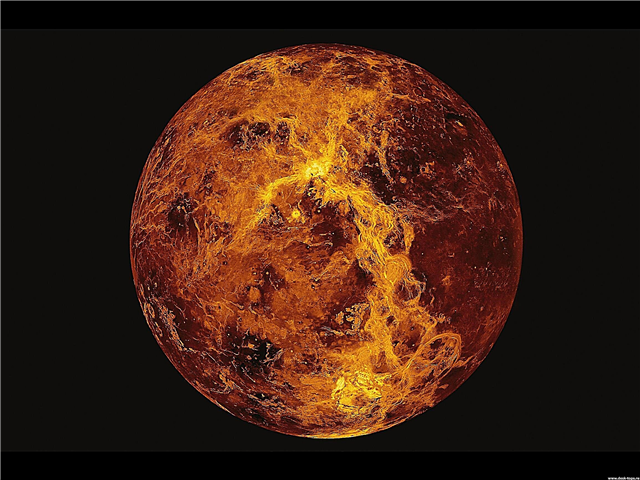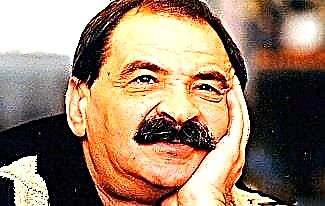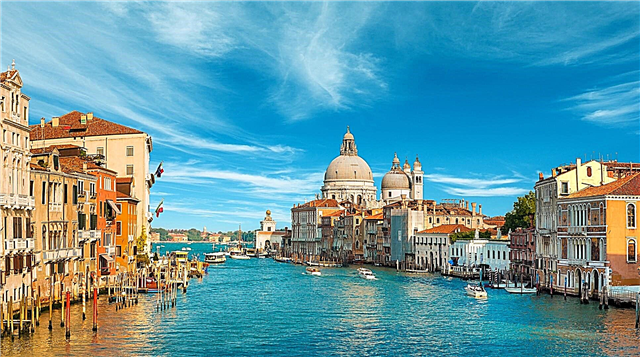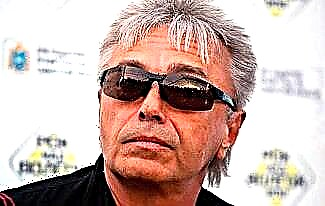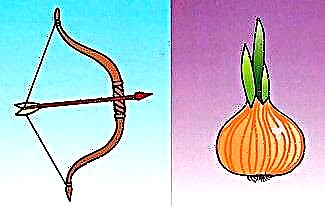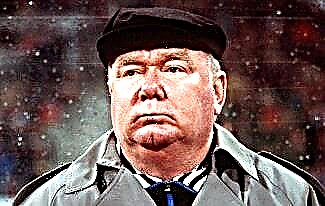In one of the Soviet films, there is a scene that is historically inaccurate, but very accurate in terms of the position of the Bolsheviks in Soviet Russia in the first years after the seizure of power. During interrogation by the head of the Cheka Felix Dzerzhinsky, one of the arrested members of the Provisional Government announced that when they were taken to the fortress, they would sing a brave soldier's song. And he asks Dzerzhinsky what the Bolshevik gentlemen will sing. Iron Felix, without hesitation, replies that they will not have to sing - they will be killed on the way.

The Bolsheviks, no matter how you treat them from a political point of view, for three decades lived and built their country under the direct and immediate threat of being killed “on the way”. They would not have been spared (and spared) neither by whites during the Civil War, nor by the owners of newspapers and steamers, if they returned to Russia on foreign bayonets, nor by the Nazis in the Great Patriotic War. But as soon as the likelihood of the personal death of every Bolshevik due to the collapse of the entire system disappeared, the inexorable slide of the Soviet state towards collapse began.
Let's try to remember what the Bolsheviks were like, what they wanted and why, in the end, they lost.
1. The founder of Bolshevism, VI Lenin, characterized the name “Bolsheviks” as “meaningless”. Indeed, it did not express anything except the fact that Lenin's supporters were able to win over to their side most of the delegates to the Second Congress of the RSDLP. However, Lenin's reflection was superfluous - by the beginning of the 20th century, the names of political parties in almost all countries with a more or less trying to be similar to the political system representing the will of the people were a set of words. Socialists were afraid of socialism like fire, “People's” parties called themselves either monarchists or representatives of the petty bourgeoisie, and everyone, from communists to outright Nazis, called themselves “Democratic”.
2. The differences between the Bolsheviks and Mensheviks were called by both sides a split. In fact, this only concerned internal party relations. Good personal relations were maintained between members of the factions. Lenin, for example, had a long friendship with the leader of the Mensheviks, Yuli Martov.

3. If the Bolsheviks called themselves that way, then the name Mensheviks existed only in Bolshevik rhetoric - their opponents called themselves the RSDLP or simply the party.
4. The fundamental difference between the Bolsheviks and other members of the RSDLP was the extreme severity and toughness of the policy. The party should strive for the dictatorship of the proletariat, advocate the transfer of land to those who cultivate it, and nations should have the right to self-determination. In addition, all party members must work in a specific party organization. It is easy to see that these points were implemented as soon as possible after the Bolsheviks came to power.
5. Among other parties, the Bolsheviks, before coming to power in 1917, pursued a flexible policy within the framework of the possible, restructuring their activities depending on the political moment. Their basic requirements remained unchanged, but their tactics changed frequently.
6. During the First World War, the Bolsheviks advocated the defeat of Russia. In the beginning, against the background of the patriotic upsurge of the people, this turned the masses away from them and gave the government a reason to resort to repression. As a result, by 1917, the political influence of the Bolsheviks tended to zero.
7. Most of the organizations of the RSDLP (b) in Russia until the spring of 1917 were defeated, many prominent party members were in prison and exile. In particular, JV Stalin was also in distant Siberian exile. But immediately after the February Revolution and the amnesty announced by the Provisional Government, the Bolsheviks were able to organize powerful party organizations in large industrial cities and St. Petersburg. The number of the party in a short time increased 12 times and reached 300,000 people.

8. The leader of the Bolsheviks, Lenin had a powerful gift of persuasion. On his arrival in Russia in April 1917, he announced his famous "April Theses": refusal to support any government, the disbandment of the army, immediate peace and the transition to a socialist revolution. At first, even the closest associates recoiled from him, Lenin's program was so extremist even for the time of post-February lawlessness. However, two weeks later the All-Russian Conference of the Bolshevik Party adopted the April Theses as a program of action for the entire organization.
9. The arrival of Lenin and his associates in Petrograd is considered by many to be inspired and organized by the German military. The deepening of the revolutionary processes would really play into the hands of Germany - the most powerful of the country's enemies came out of the war. However, the end result of this operation - as a result of the revolution, Lenin seized power, and the Kaiser, who was served by the German military, was overthrown - makes one wonder who used whom in this operation, even if it existed.

10. Another serious and practically irrefutable accusation against the Bolsheviks is the murder of Emperor Nicholas II and members of his family. Although there are still disputes about who exactly was shot in the Ipatiev house in Yekaterinburg, most likely it was Nikolai, his wife, children, servants and a doctor who were killed. Political expediency could justify the execution of the emperor, in extreme cases, the minor heir, but in no case the murder of practically strangers to the succession to the throne.

11. As a result of the October armed uprising, the Bolsheviks came to power in Russia and remained the ruling party (under various names) until 1991. The word “Bolsheviks” disappeared from the name of the party called RCP (b) “Russian Communist Party”) and VKP (b) (“All-Union Communist Party”) only in 1952, when the party received the name KPSS (“Communist Party of the Soviet Union”) ...
12. The most demonized leader of the Bolsheviks after Lenin was Joseph Stalin. He is credited with multimillion human sacrifices, the extermination of peoples during resettlement and a host of other sins. The achievements of the Soviet Union under his rule are either put out of brackets, or are considered accomplished against the will of Stalin.
13. Despite the seeming omnipotence of Stalin, he was forced to maneuver between different groups in the leadership of the Bolshevik Party. It seems that in the discussion about economic doctrine in the USSR in the early 1930s, he either missed the moment, or was forced to come to terms with the persecution of the Orthodox Church and the destruction of churches. The Bolshevik state was able to return to the issue of interaction with the church only during the war years.
14. The leaders of the Bolshevik Party were successively V. Lenin, I. Stalin, NS Khrushchev, L. Brezhnev, Yu. Andropov, K. U. Chernenko and M. Gorbachev.

Mr. Zyuganov, for all the shortcomings of his predecessors, here is clearly superfluous
15. Throughout their tenure in power, the Bolsheviks and Communists were accused of banal theft. It all started with millions of Swiss francs in cash, allegedly kept in the safe of the secretary of the Central Committee of the RCP (b) Yakov Sverdlov in the 1920s, and ended with billions of US dollars deposited in the West under the leadership of Nikolai Kruchina, the head of the CPSU Central Committee, who committed suicide in the last days of his existence THE USSR. Despite the loudness of the accusations, neither the special services of various countries, nor private investigators managed to find a dollar from the "Bolshevik" money.
16. In the historical and fiction literature you can find the concept of "old Bolsheviks". It is not at all about the age of those who are called by this term. Prominent members of the RSDLP (b) - RCP (b) - VKP (b), who fell under the roller of repressions in the 1930s, began to be called old Bolsheviks in the 1950s - 1960s. The adjective “old” in this case meant “who knew Lenin”, “had pre-revolutionary party experience” with an obvious positive connotation. Stalin allegedly unleashed repressions in order to remove from power the good, knowledgeable Bolsheviks, and put his illiterate promoters in their place.
17. In view of the fact that during the Civil War and the intervention of the Western powers, the USA and Japan against Soviet Russia, the parties of the entire political spectrum, from the Mensheviks to the monarchists, when enthusiastically and when they were forced to support military actions against the Soviet government, the concept of “Bolshevik” acquired broad interpretation. Simple peasants who had the misfortune to plow a tithe of landlord's land or workers mobilized into the Red Army began to be called “Bolsheviks”. The political views of such "Bolsheviks" could be arbitrarily far from Lenin's.
18. The Nazis also tried to use a similar trick during the Great Patriotic War. The peoples of the Soviet Union were declared victims of the "Bolsheviks": Jews, communists and various bosses. Hitler and his associates completely did not take into account the fact that social elevators worked at an unprecedented speed in the Soviet Union. The big Bolsheviks could get a peasant son who showed organizational skills at a construction site, or a Red Army soldier who distinguished himself in extra-urgent service and became a red commander. Having registered most of the people as Bolsheviks, the Nazis naturally received a powerful partisan movement in their rear.

19. The Bolsheviks suffered their main defeat not in 1991, but much earlier. A system in which decisions on all issues are made not by competent specialists, but by people invested with the confidence of the party, but not having the necessary knowledge, worked tolerably well in a rather archaic Soviet society in the mid-20th century, and helped to win the war with Nazi Germany. But in the post-war period, society, science and production began to develop so quickly that the Bolshevik Party could not keep up with them. Starting with Khrushchev, the leaders of the communists no longer led the processes in society and the economy, but only tried to somehow cope with them. As a result, the system went haywire and the USSR ceased to exist.
20. In modern Russia, there was also the National Bolshevik Party (banned in 2007 as an extremist organization). The party leader was the famous writer Eduard Limonov. The party program was a rather eclectic mixture of socialist, nationalist, imperial and liberal views. As part of direct action actions, the National Bolsheviks seized premises in the Presidential Administration, the office of Surguneftegaz, the RF Ministry of Finance, threw eggs and tomatoes at politicians, and hung out illegal slogans. Many National Bolsheviks received real sentences, even more were sentenced on probation. Limonov himself, taking into account preliminary detention, served a four-year prison sentence for illegal possession of weapons.


